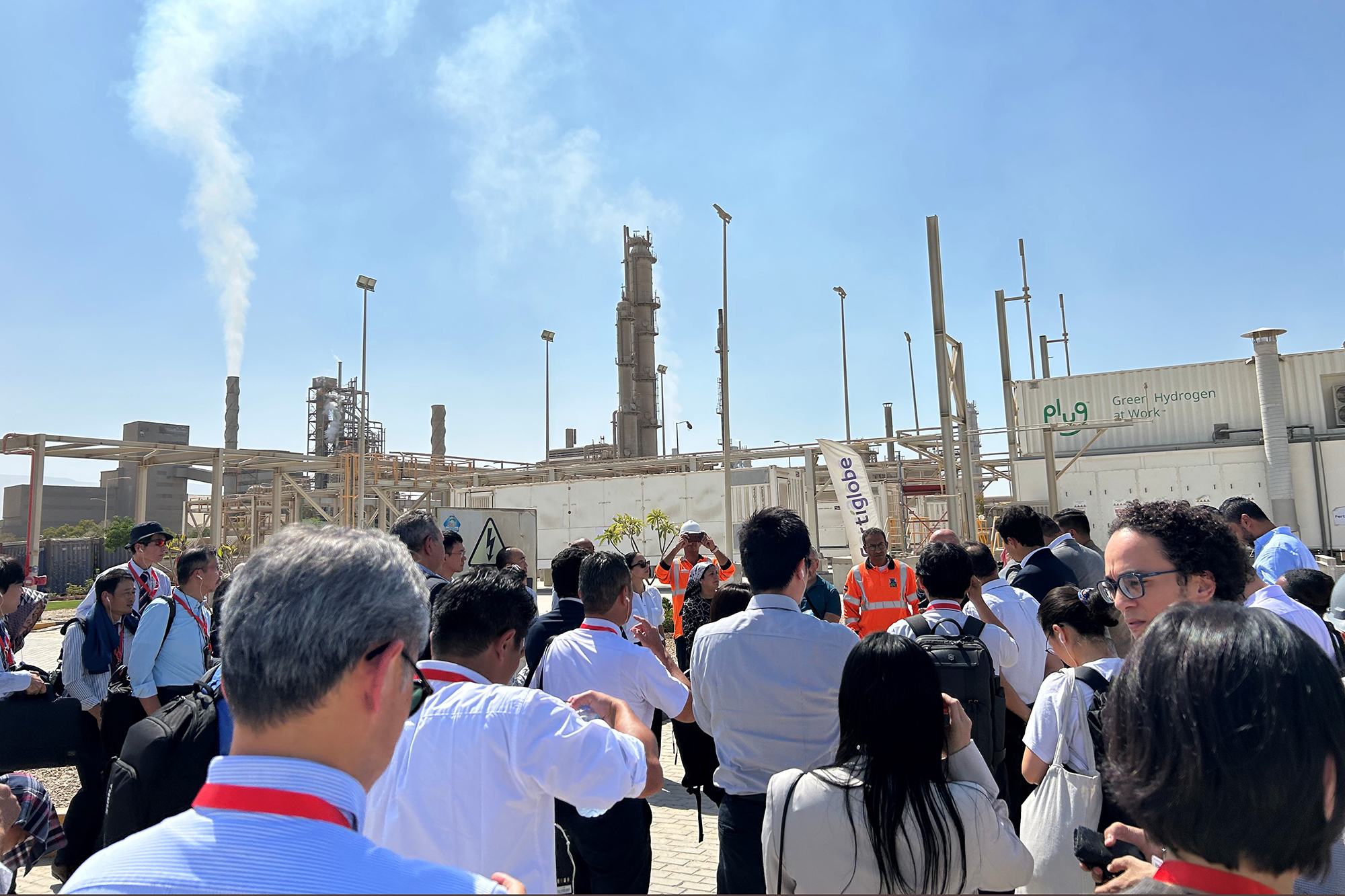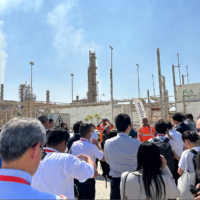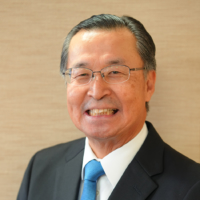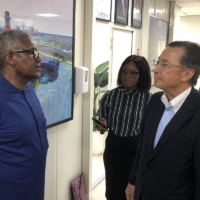From Aug. 20 to 22, the ninth Tokyo International Conference on African Development will be held in Yokohama. This year’s TICAD is particularly noteworthy as it coincides with Expo 2025 in Osaka, Japan’s western commercial hub. Ahead of TICAD, 46 African nations are participating in the expo, strategically showcasing their countries’ appeal by introducing their cultures through music and dance at National Day events and holding business seminars. The Japan External Trade Organization has been actively supporting these efforts by promoting African-led seminars in Osaka through various channels.
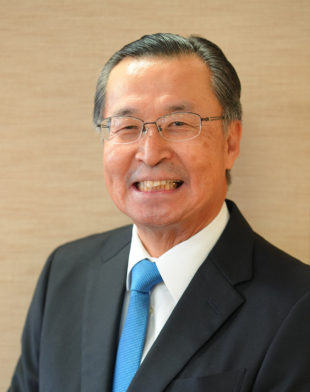
This year, Africa is receiving unprecedented attention in Japan’s two major metropolitan centers — Tokyo and Osaka — thanks to the synergistic effect of TICAD 9 and the expo.
Corporate expectations for the African market are strong in Japan. According to JETRO’s annual survey of Japanese firms in the region, approximately 60% anticipate growing demand in African markets and plan to expand their operations in the next one to two years. Over half of the companies surveyed reported having increased their market share compared with pre-COVID levels in 2019, a figure that ranks high even by global standards. Believing in Africa’s leapfrogging potential in emerging sectors, such as digital transformation, green transformation, health care and education, more entrepreneurs and business leaders are venturing into the continent.
Through initiatives like the Japan Tech Africa Challenge and the Japan Innovation Bridge platform, JETRO is supporting Japanese startups entering Africa and connecting African startups and ecosystem players with Japanese industrial circles.The same survey also revealed growing interest among Japanese firms in new energy sectors, such as hydrogen and renewables, as well as food-related industries whose markets reflect Africa’s youthful demographics — sectors they are ready to venture into. In response, JETRO has dispatched business missions to Morocco, Algeria, Egypt and South Africa to explore opportunities and foster business projects in the focal areas of hydrogen and renewables.
Personally, I have been preparing for TICAD 9 with great anticipation. In January, I visited Nigeria on my first overseas trip of the year and witnessed firsthand the real Africa of today. At the Dangote Refinery, I was impressed by the scale of dynamic capital investment and heard this powerful message from Aliko Dangote, “Japanese companies must engage deeply with their African counterparts.”
In the commercial metropolis of Lagos, local startups were using digital technology to visualize complex distribution systems. In Abuja, the capital, I met a government minister responsible for innovation and the digital economy — a founder of Co-Creation Hub who had previously collaborated with JETRO during TICAD 7 in Yokohama six years ago. Despite its challenges, Nigeria is steadily advancing in democratic governance and leveraging private-sector wisdom to shape its future. These experiences reaffirmed my impression of Africa’s immense potential.
Following my visit to Nigeria, JETRO welcomed President Hakainde Hichilema of Zambia in February and Deputy President Paul Mashatile of South Africa in March. Since assuming the role of JETRO chairman, I have also had the honor of hosting President Joao Lourenco of Angola in March 2023 and President William Ruto of Kenya in 2024. All of these visits included economic forums and roundtable discussions with Japanese companies present in Africa, with African leaders directly delivering their messages to Japan’s business community.
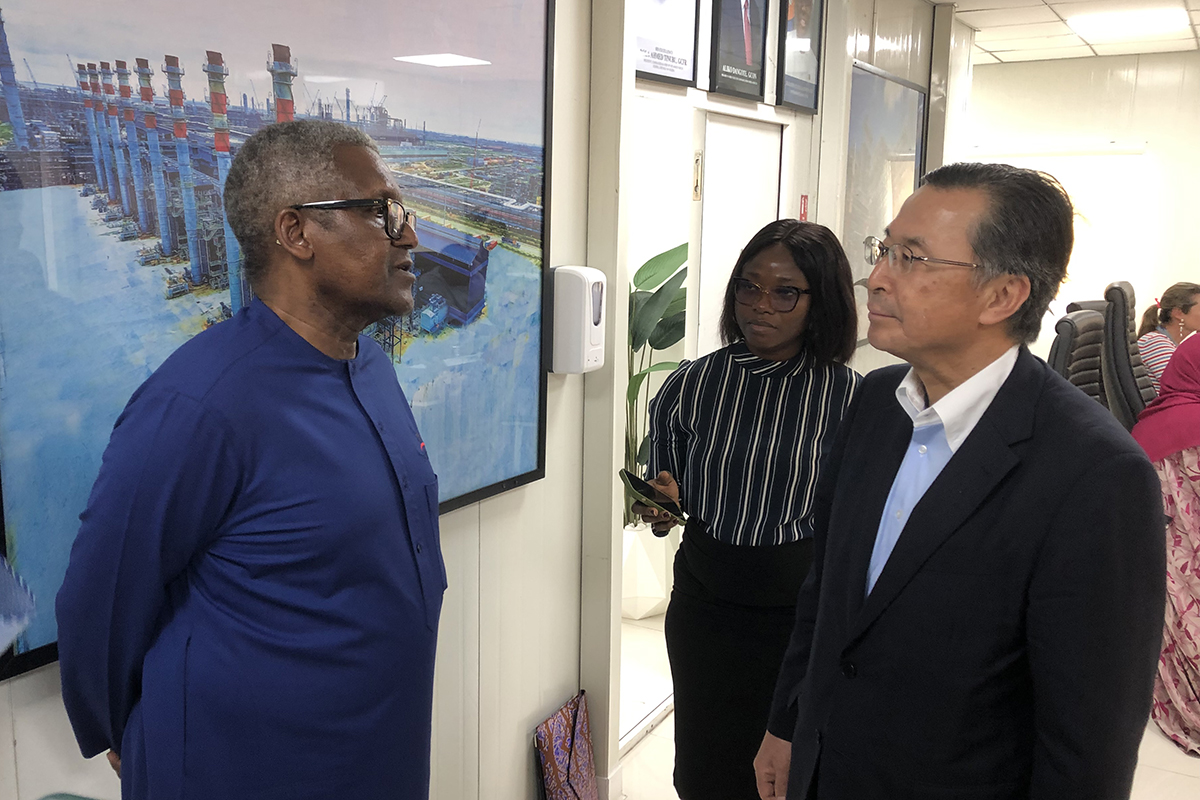
In addition to leading JETRO, I serve as co-chair of the Japan Business Council for Africa. In July, together with fellow co-chairs from the Ministry of Economy, Trade and Industry, the Ministry of Foreign Affairs, Keidanren and the Japan Association of Corporate Executives (Keizai Doyukai), we convened the third JBCA General Assembly to build momentum for TICAD 9. JBCA was established following recommendations from private economic organizations during TICAD 7 and serves both as a channel for public-private dialogue and a platform for collaboration on African business.
Japanese ministries and agencies are actively engaged in initiatives ranging from startup support and trilateral cooperation to agricultural development and quality infrastructure. JBCA works in tandem with these efforts, disseminating event information, and recently has been sharing updates on African National Days at Expo 2025.
That said, we must not be overly optimistic about Africa’s current situation. TICAD 8 was held in Tunisia amid the lingering effects of the COVID-19 pandemic. In the three years since, African countries have faced new challenges. Russia’s invasion of Ukraine and tensions in the Middle East have disrupted energy and grain supplies. As global trade decouples, the influx of Chinese goods into Africa has increased, offering affordable options for consumers across Africa but raising concerns about domestic industrial development and production.
More recently, the dismantling of the United States Agency for International Development has impacted health care, and reciprocal tariffs have conspicuously affected export industries. The situation is changing by the minute, with external shock waves destabilizing economies and political landscapes across the continent.Over the 30 years since its inception, TICAD has evolved significantly — most notably in its growing emphasis on business. Yet its core principle remains unchanged: being the platform where diverse stakeholders can have open dialogues about Africa’s challenges and future — always with the continent at center stage. In an era of global fragmentation, the spirit of dialogue that has defined TICAD from the beginning is more vital than ever. I believe that direct engagement between Japan and Africa will deepen mutual understanding and trust, laying the foundations for a new era of co-creation.
At TICAD 9, JETRO will co-host the TICAD Business Expo and Conference with JBCA. With a record 195 Japanese companies exhibiting and nearly 40 African nations participating, TBEC will feature the Japan Fair, showcasing Japanese technologies, and the Africa Lounge, where African countries will present their investment climates, both aimed at creating new business opportunities.
Memorandums of understanding between Japanese companies and African governments and companies will also be introduced. On the main stage, sessions will highlight African business leaders and explore themes such as innovation, hydrogen, renewable energies, space and pop culture, including anime.To build a new co-creative Japan-Africa relationship oriented to the future, business development in emerging industries is essential. The conference will spotlight the dynamism of African enterprises and the social challenges they aim to address by collaborating with Japanese companies. These interactions will surely spark innovation on both sides. Many African countries are well suited for hydrogen and renewable energy production on a global scale. These are fields where Japanese technology can make a meaningful contribution and where mid- to long-term corporate engagement is crucial.
Space technology is another frontier for African public-private collaboration and co-creation, with Earth observation and telecommunications satellites are providing opportunities for a wide range of applications, from border control and resource exploration to carbon emissions monitoring. Japan’s space ecosystem, including startups, can support Africa across all phases — from talent development to industrialization. Japanese pop culture can also serve as a bridge between the youth of Japan and Africa that easily transcends physical distance and fosters emotional connections. TBEC will explore business opportunities in anime and esports as well.
JETRO’s vision, mission and values are encapsulated in the phrase: “Connecting with the world. Together, we move forward.” TBEC is a bold embodiment of this enterprising spirit.



